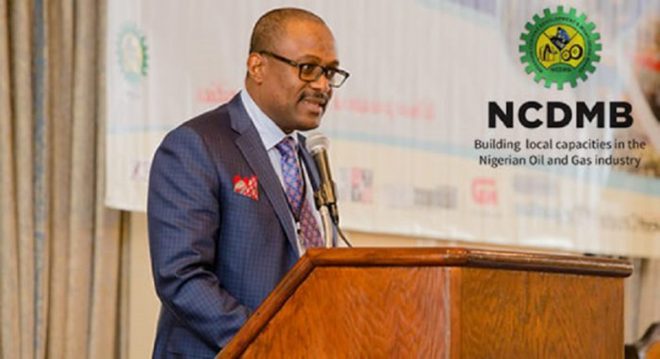The Executive Secretary of the Nigerian Content Development and Monitoring Board (NCDMB), Mr Simbi Wabote, has said the participation of Nigerians and expatriates in the Train 7 project of the Nigeria LNG Limited will be about 50%.
Wabote disclosed this at a press briefing in Lagos ahead of the 2021 edition of the Nigeria Oil and Gas Opportunity Fair. He said: “The Nigerian-expat share on the Train 7 project is approximately 50/50. The reason the local content could not go higher was because of technical aspects like the cryogenic unit that need to be controlled by efficient capital and expertise. The last train, Train 6, was built about eight years ago and the capacity that came with it is gone. The cryogenic operations involve a lot of intellectual property, which would not be given freely. We cannot force the application of local content, and therefore have to be pragmatic.”

He added they have to be assured of profitability; else they go to other oil-producing countries where the marginal rate of return is higher. “We were able to agree by allowing the Original Equipment Manufacturers handle the building of the cryogenic unit out of the country. We only negotiated with them to allow a considerable level of Nigerian participation, so in case the process became cheaper and we later acquired the proprietary technology, we would then be able to use local content to build capacity on it,” he said.
He noted that NCDMB was able to sign a contract for the Train 7 project in conjunction with the Nigeria LNG for about $5bn worth of opportunities that came into the midstream sector. “We also have secured another $5bn for upstream projects linking the Train 7 projects. This totals about $10bn for the Train 7 project, even though we are still in the contractual phase for the upstream project. Hopefully, within the third to fourth quarter of this year, we will finalise the contracts,” Wabote said.
Responding to a question about setting a level playing field for Nigerian companies to compete for opportunities, he said there were no stringent terms for companies to apply.
He said looking at the Nigerian Oil and Gas Industry Content Development Act 2010, it was stated that due to the nature of the oil and gas business, there could be no compromise in terms of quality and standard as doing that could expose a lot of people to high risks.


